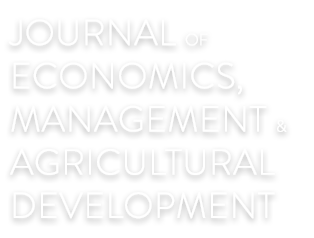Authors
ABSTRACT
Oil palm smallholders on peatlands have contributed significantly to economic development in rural areas by augmenting income and reducing poverty. However, these plantations also cause adverse environmental impacts such as carbon emission, haze and peat fires, deforestation, water supply disruption and biodiversity loss. The objective of the study is to determine the economic impacts of developing smallholder oil palm plantations on peatlands in Siak District Riau Province, Indonesia. Cochran sampling technique was employed to select the respondents. Cost benefit analysis was used to determine the economic impacts of the smallholder oil palm plantations. Results reveal that the development of 94,726 ha oil palm smallholder plantation on peatlands in 2014 had generated an estimated 37,326 jobs and increased the average total income of smallholder households to US$ 4,556 per year with a multiplier effect estimated at 3.01 for the Siak economy. Total benefit from the 94,726 ha oil palm smallholder plantation was computed at US$ 2,152 million per year. However, the unsustainable oil palm cultural practices of smallholders have led to negative environmental effects. It was estimated that approximately US$1,116 million is lost per year due to the adverse environmental impacts such as carbon emission, deforestation, water supply disruption and biodiversity loss, among others. The results of the economic analysis show NPV, BCR and EIRR to be equal to US$ 1,036 million, 1.93 and 21.91%, respectively. These results indicate that smallholder oil plantations on peatland in Siak provide net economic benefits for Siak’s economy. Proposed policies include the encouragement of sustainable oil palm plantations characterized by a synergistic relationship among legal, social and financial aspects in order to provide optimal economic impacts to communities and minimize adverse effects on the environment.

